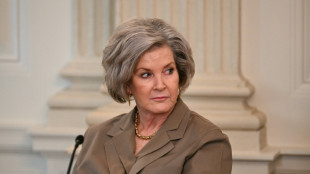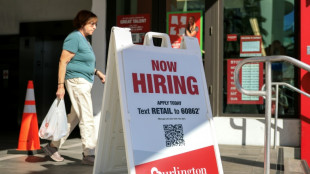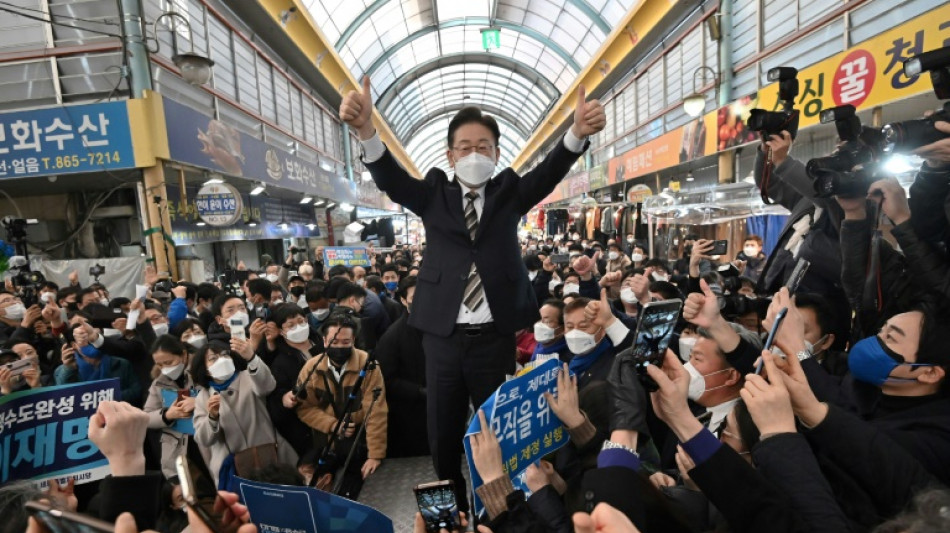
-
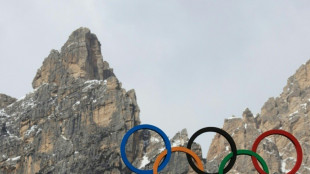 Artificial snow woes for Milan-Cortina Winter Olympics organisers
Artificial snow woes for Milan-Cortina Winter Olympics organisers
-
Trump imposes full travel bans on seven more countries, Palestinians

-
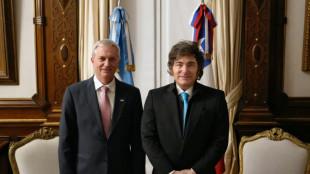 New Chile leader calls for end to Maduro 'dictatorship'
New Chile leader calls for end to Maduro 'dictatorship'
-
Shiffrin extends slalom domination with Courchevel win

-
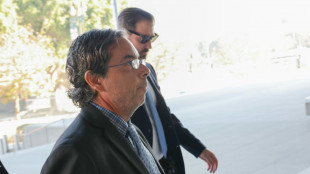 Doctor sentenced for supplying ketamine to 'Friends' star Perry
Doctor sentenced for supplying ketamine to 'Friends' star Perry
-
Tepid 2026 outlook dents Pfizer shares
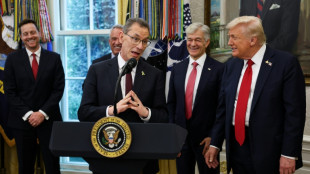
-
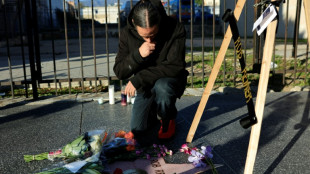 Rob Reiner murder: son not medically cleared for court
Rob Reiner murder: son not medically cleared for court
-
FIFA announces $60 World Cup tickets for 'loyal fans'
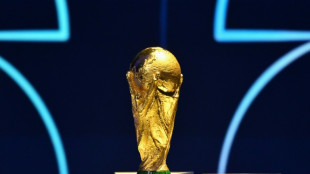
-
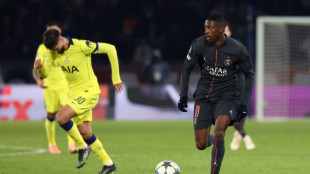 Dembele and Bonmati scoop FIFA Best awards
Dembele and Bonmati scoop FIFA Best awards
-
Shiffrin dominates first run in Courchevel slalom

-
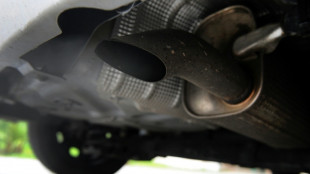 EU weakens 2035 combustion-engine ban to boost car industry
EU weakens 2035 combustion-engine ban to boost car industry
-
Arctic sees unprecedented heat as climate impacts cascade

-
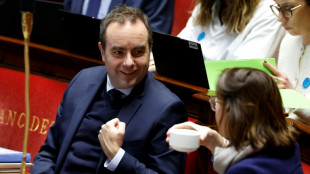 French lawmakers adopt social security budget, suspend pension reform
French lawmakers adopt social security budget, suspend pension reform
-
Afrikaners mark pilgrimage day, resonating with their US backers
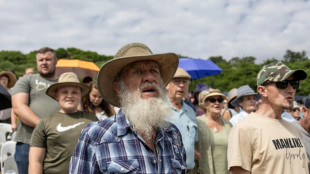
-
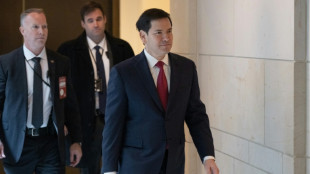 Lawmakers grill Trump officials on US alleged drug boat strikes
Lawmakers grill Trump officials on US alleged drug boat strikes
-
Hamraoui loses case against PSG over lack of support after attack

-
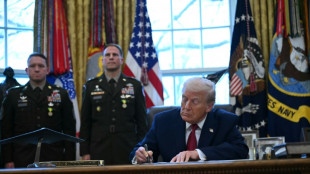 Trump - a year of ruling by executive order
Trump - a year of ruling by executive order
-
Iran refusing to allow independent medical examination of Nobel winner: family
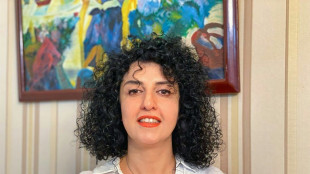
-
 Brazil megacity Sao Paulo struck by fresh water crisis
Brazil megacity Sao Paulo struck by fresh water crisis
-
Australia's Green becomes most expensive overseas buy in IPL history

-
 VW stops production at German site for first time
VW stops production at German site for first time
-
Man City star Doku sidelined until new year

-
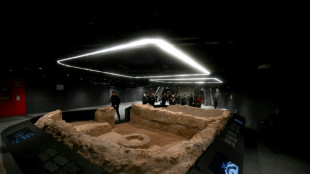 Rome's new Colosseum station reveals ancient treasures
Rome's new Colosseum station reveals ancient treasures
-
EU eases 2035 combustion-engine ban to boost car industry
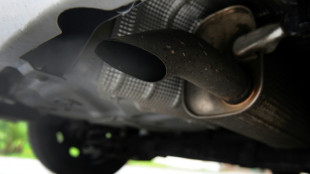
-
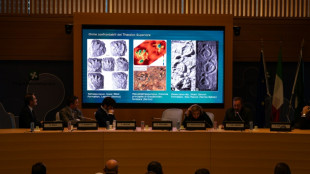 'Immense' collection of dinosaur footprints found in Italy
'Immense' collection of dinosaur footprints found in Italy
-
US unemployment rises further, hovering at highest since 2021
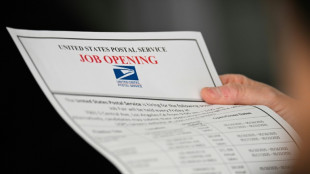
-
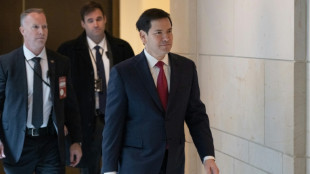 Senators grill Trump officials on US alleged drug boat strikes
Senators grill Trump officials on US alleged drug boat strikes
-
Filmmaker Rob Reiner's son to be formally charged with parents' murder
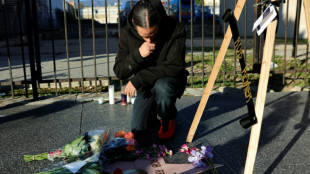
-
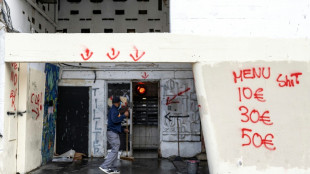 Shift in battle to tackle teens trapped in Marseille drug 'slavery'
Shift in battle to tackle teens trapped in Marseille drug 'slavery'
-
Stocks retreat on US jobs, oil drops on Ukraine hopes
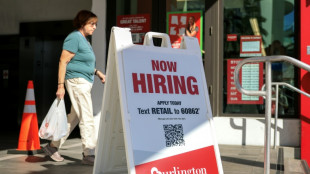
-
 Manchester United 'wanted me to leave', claims Fernandes
Manchester United 'wanted me to leave', claims Fernandes
-
Serbian President blames 'witch hunt' for ditched Kushner hotel plan
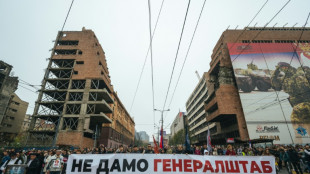
-
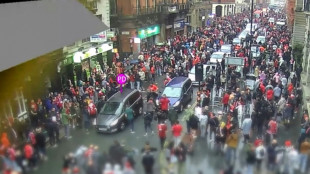 Man who hit Liverpool parade jailed for over 21 years
Man who hit Liverpool parade jailed for over 21 years
-
Sahel juntas would have welcomed a coup in Benin: analysts
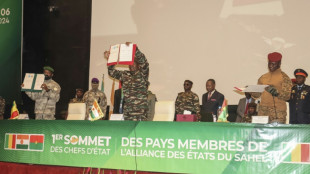
-
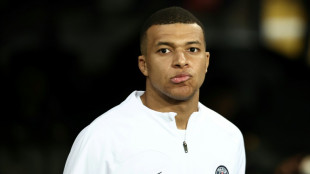 PSG ordered to pay around 60mn euros to Mbappe in wage dispute
PSG ordered to pay around 60mn euros to Mbappe in wage dispute
-
BBC says will fight Trump's $10 bn defamation lawsuit
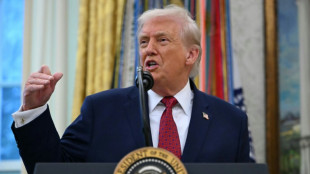
-
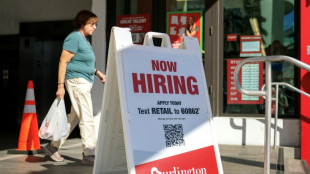 Stocks retreat ahead of US jobs, oil drops on Ukraine hopes
Stocks retreat ahead of US jobs, oil drops on Ukraine hopes
-
Suicide bomber kills five soldiers in northeast Nigeria: sources
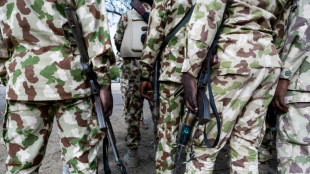
-
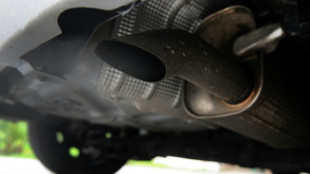 EU set to drop 2035 combustion-engine ban to boost car industry
EU set to drop 2035 combustion-engine ban to boost car industry
-
Australia's Green sold for record 252 mn rupees in IPL auction

-
 Elusive December sun leaves Stockholm in the dark
Elusive December sun leaves Stockholm in the dark
-
Brendan Rodgers joins Saudi club Al Qadsiah

-
 Thailand says Cambodia must announce ceasefire 'first' to stop fighting
Thailand says Cambodia must announce ceasefire 'first' to stop fighting
-
M23 militia says to pull out of key DR Congo city at US's request
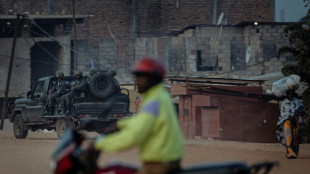
-
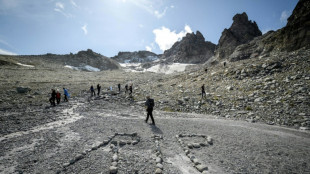 Thousands of glaciers to melt each year by mid-century: study
Thousands of glaciers to melt each year by mid-century: study
-
China to impose anti-dumping duties on EU pork for five years
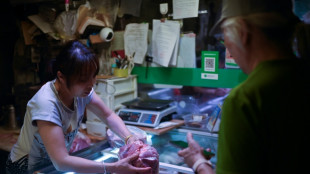
-
 Nepal starts tiger census to track recovery
Nepal starts tiger census to track recovery
-
Economic losses from natural disasters down by a third in 2025: Swiss Re

-
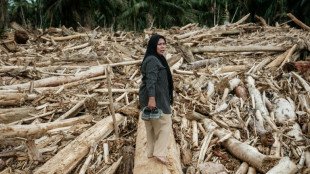 Indonesians reeling from flood devastation plea for global help
Indonesians reeling from flood devastation plea for global help
-
Timeline: How the Bondi Beach mass shooting unfolded
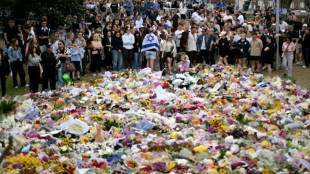

Working-class hero? Ex-factory boy aims for South Korean presidency
Cultural hits from Netflix show "Squid Game" to Oscar-winner "Parasite" have raised South Korean inequality to global prominence, and one presidential hopeful claims his working-class credentials make him the best man to fix a broken system.
Former child factory worker Lee Jae-myung, a school dropout maimed in an industrial accident as a teen, is the ruling Democratic Party's maverick candidate in the March 9 election.
A rarity for politicians in status-obsessed South Korea, Lee is playing up his rags-to-riches tale in a bid to convince voters he can solve their economic woes.
Sky-high real estate prices, stagnant growth and stubborn youth unemployment are among voters' top concerns in an election where polling is neck-and-neck and the campaign has been dominated by mud-slinging.
From universal basic income to government-funded hair-loss treatment, former mayor and provincial governor Lee is proposing a slew of unorthodox policies that his campaign says are a reflection of his impoverished childhood.
"You can worry about people outside shivering in the cold while you sit in your warm living room," Lee told AFP in an exclusive interview in his campaign van.
"But you can never really understand their pain."
The opposition decries his proposals as populist, saying Lee is trying to "buy votes with free money" and will "burden the next generation with debt".
And a series of scandals have marred Lee's run for top office: his wife was accused of misappropriating public funds; he is being scrutinised over a suspect land development deal, and he is dogged by rumours of mafia ties.
He started his campaign by being forced to apologise for a profanity-laden family phone call, and was the subject of a controversial book describing his efforts to section his brother in a mental hospital.
- No bow tie -
Last year, his campaign published two photographs: one showing a floppy-haired young Lee in an ill-fitting suit, the other of teenage Yoon Suk-yeol, the presidential candidate for the People Power Party, in a bow tie.
It was an effort to hammer home the contrast between Yoon, raised in an affluent family, and Lee, who dropped out of school at 11 then put himself through night school.
Lee's story appears to resonate with supporters. At a recent rally in the central city of Cheongju, many waved placards saying: "Only those who know the pain of hunger understand the tears of the ordinary people."
But it is unclear whether it will be enough to propel him to victory in a tight race, with most recent polls falling within the margin for error. One survey released Tuesday showed Yoon in the lead by 2.5 percent.
Political analyst Park Sang-byoung said how the candidates perform in two upcoming televised debates, and whether they can broaden their message to attract swing voters, would be decisive.
In the 1970s, Lee was working in a glove factory as South Korea underwent a rapid economic rise, largely driven by manufacturing.
Labour rights activist Chun Soon-ok, whose brother self-immolated to protest brutal working conditions in South Korean factories back then, said it was a terrible time for manual labourers.
"Managers at the time didn't treat us as human beings," she said.
Lee told AFP: "It was a repressive era and managers dressed in military uniform would beat up junior workers. I figured I could only save myself from a beating if I became a manager, a position that required a high school degree."
After his arm got stuck in a press aged 13, he was left permanently disabled and became "suicidal", but night school and a law school scholarship gave him a way out.
He became a human rights lawyer, before entering politics in 2010.
It is "unheard of" for a former child labourer to become an elected politician, said Lee Sang-don, a former MP who taught Lee law at university in the early 1980s.
Although other politicians such as former president Roh Moo-hyun have grown up poor, South Korea's legislature is dominated by the wealthy and well-connected, with most parliamentarians classed as millionaires according to their declared assets.
- Universal basic income -
Lee's political rise has coincided with growing domestic concern over inequality, and his move in 2019 as governor of Gyeonggi province to give cash handouts to young adults captured the zeitgeist.
He also rolled out free school uniforms and free maternity care, and in early 2020 offered his constituents the country's first pandemic relief funds.
If he wins next month, he has pledged to expand his universal basic income scheme nationwide, saying he'll give 1 million won ($835) each year to every adult.
"I had to work in a factory because I couldn't pay for school," he told AFP, explaining his rationale.
"My parents were cleaners. I escaped poverty, but many around me are still stuck... I want to change the system."
X.Brito--PC

